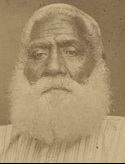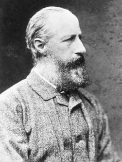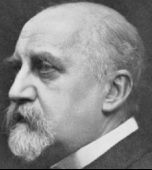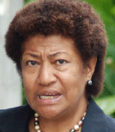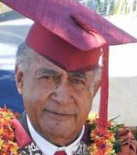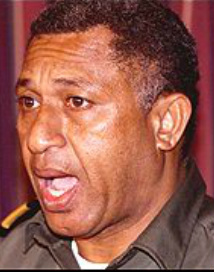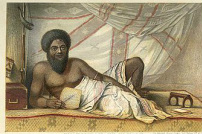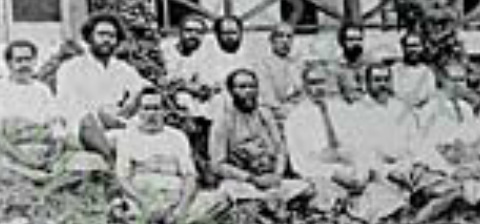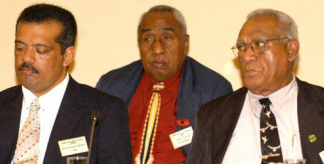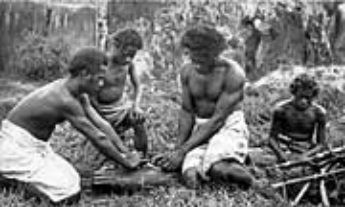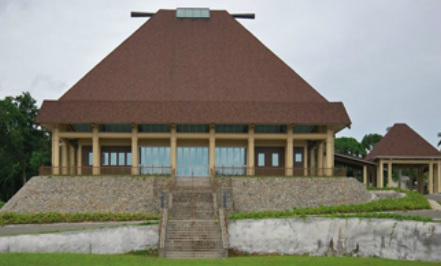Trouble brewing for Chief Warwar of Malampma in Fiji as
submissions back Great Council of Chiefs
Frank's diktat against BLVThe illegal leader Voreqe Bainimarama on seizing power had told the Fijian chiefs to go drink home-brew under the mango. tree. In March he abolished the Bose Levu Vakaturaga informing the nation: "Good morning to you all. The President Ratu Epeli Nailatikau has approved decrees that formally de-establish the Great Council of the Chiefs an institution created by the British during colonialism, and one that in modern times has become politicized to the detriment of Fiji’s pursuit of a common and equal citizenry. The Great Council of the Chiefs is a product of our colonial past and Fiji must now focus on a future in which all Fijians are represented on the same basis. If all Fijians are to have their say during the consultations for Fiji’s new constitution, we must ensure every voice is equally heard and equally represented. | In 1875, the British under colonialism created an elite body of iTaukei Chiefs known as the “Native Council” to directly and indirectly implement its rule over Fiji. The members of this body, which later came to be called the Great Council of Chiefs, held certain privileges. | Over the last 20 years the GCC, including its secretariat, became highly politicised, with its members having political affiliations and membership in political parties. Unfortunately, this resulted in the GCC and its members unduly involving themselves in national politics and/or taking advantage of the GCC’s traditional role to assert personal or political agenda. Fiji’s iTaukei heritage is a distinct and fundamental aspect of Fiji—this cannot be denied. However, as an institution the Great Council of Chiefs perpetuated elitism and fed into the divisive politics which plagued our country. We must now look to our commonalities as citizens of the same nation, not to what separates us as individuals or groups. In recent years, my government has done much to ensure that many of the challenges facing the iTaukei have been addressed—including equal distribution of land lease monies." |
1: Fighting back BLV Decree: SDL gives Frank history lessonBut now chiefs, individuals and political parties are fighting back through their submissions to Constitution Review Commission. Let us take the SDL's submission, which began with a history lesson of Fiji's chiefly past and their institution, the Bose Levu Vakaturaga. The party told the Commission; "From time immemorial, Fijians selected their chiefs on the basis of their ability to look after them and protect them from the ravages of war and natural calamities to enable them to live in peace with other neighboring mataqali (sub-clan), in the Yavusa (Clan). The expansion of the Yavusa led to the creation of Vanua, the largest Social Unit below the level of Matanitu or Confederacy16 which was the highest political unit that survived at the time of contact with Europeans and the outsiders, during the 18th and 19th centuries. The running of these Yavusa, Vanua and Matanitu required alliances, meetings and settlement of disputes including major social intercourses in which the chiefs and their leading traditional advisers took pre-eminent roles. One such historical meeting recorded by indigenous researchers was the meeting of all the eight Vanua in Fiji where people had settled shortly after their arrival, and the initial settlement of the three waves of migration of our ancestors, some 3500 years ago. This was a national meeting called by Chief Lutunasobasoba at Nakauvadra. At this meeting, he was installed as the paramount Chief of the country and given the title (yacabuli) of Ratu. Other categories of Chiefs and craftsmen, skilled artisans, warriors and tillers of the land were also recognised. At this meeting, the Bete Levu Ni Kalou (the High Priest/or Spiritual Chief) was named; and acknowledged. This title was given to Degei No.218. This historical meeting affected the lives of indigenous Fijians in their new homeland as it provided the basis for their social organisation, protocol and way of life which has persisted to this day. That meeting stamped the importance of the role of chiefs in the lives of the Fijian people in their new land. The Fijians maintained their system of consultation with relevant chiefs and their people up to the present time. Since early settlement to the time of ceding Fiji to Her Majesty, Queen Victoria of Great Britain, the chiefs have always had a voice in the governance of this nation. They are a national unifying factor and have contributed not only to the enhancement of Fijian aspirations but for the aspirations of all the people of this nation. They have continued to do so and have had their role strengthened in the 1997 Constitution. Like all institutions, it is not perfect and has inherent weaknesses which required changes with time. The unilateral suspension of the BLV by the head of the Regime therefore was not an isolated incident; it was part and parcel of a bigger agenda to plunder Fijian resources by weakening the apex of Fijian institutions. It is not the first time, this is happening, but unfortunately, it is the first time after independence when we should be in control of our country and our resources and it is being done presumably with the support of the Fijian military. The advice and the action taken represent the worst form of neo-colonialism in action in Fiji. The BLV has been disestablished with effect from 2007, a period of some 6 years for no good reasons other than to weaken the Fijian control over their land to facilitate the exploitation of their land through the land decrees as pointed out above. The earlier suspension of the BLV and the consequent land grab The first time the BLV (then known as Native Council) was suspended was in 1905- 1912 by Governor Everard im Thurn following the approval of the Land Ordinance of 1905 which was drafted by Sir Arthur Gordon following the meeting of Native Council at Mualevu. This recognised the ownership of most lands by Chiefs and mataqali and left little room for the European settlers who were demanding more land for expansion of their plantations and businesses. 2: The SDL Party proposed that BVL be established under the ConstitutionThe Party also proposed that a BLV Act be passed by Parliament, setting out the role, functions, powers etc of the BLV. The SDL submission told the Commission: The BLV is established by Regulations under the Fijian Affairs Act. The BLV is the pinnacle of the Fijian social structure, and yet it does not have a stand-alone legislation for itself. | It became evident to the European settlers that it was difficult to conduct the necessary transactions because of the cumbersome procedures that had to be followed. The Planters’ Association lobbied government that the sale and leasing of land could be better managed if government had complete control. A petition was sent to the Secretary of State for the Colonies for his approval. The Fijian chiefs were alarmed at this development and wanted assurance from the Governor towards the protection of indigenous interests. In London, Sir Arthur Gordon, then Lord Stanmore was frequently consulted by the Secretary of State on policy matters, especially relating to the far flung colonies. On 16 July 1907 he spoke strongly in the House of Lords against the sale of lands in Fiji and supported a motion to stop it. This he did, not only as former Governor but also in his capacity as a Fijian landowner, a Turaga i Taukei. In his speech in the House of Lords he said: “I am a Fijian land-owner. Her late Majesty was graciously pleased, when I left Fiji, to allow me to accept a gift from the Fijian people of two small islands of no commercial value, but the possession of which was sufficient to give me the title of Turaga i Taukei, a land-owning chief in the country. It is therefore, as one of their representative, that I come before your lordships……Unless the protection of the state, which hitherto been afforded to them is continued, I see perfectly what the result will be. It will mean the end of the Fijian race” In the course of the debate, the Secretary of State for the colonies, Earl Crewe, who was also a member of the House, outlined the evolving attitude of his office as being in line with that of Lord Stanmore, and the House approved the Bill. In July 1908 the sale of native land was stopped. In his communication with the Governor of Fiji, the Secretary of State for the colonies, Earl Crewe stated that “he was inclined to think that the course of events the last 30 years had rendered it impossible for the Government of Fiji to adopt any position other than that the waste lands of Fiji must continue to be regarded as the property of the natives as much as the occupied lands”. With that experience, over 100 years ago, at the back of our minds, the recent disestablishment of the BLV can only be described as a major blunder which will take Fiji backwards some 30 years in our relationship in this country. And the way the BLV was summarily tossed out without courtesy of consulting the chiefs and their people, in Fijian protocol it represents the worse form of arrogance. All these concerns are to be taken in the context of the rapid pace of modern life, the pervasiveness of a global culture and economic growth and development based on the insatiable desire for more and more wealth at the expense of the powerless and disadvantaged with its subsequent deleterious effects on the environment and the rapid depletion of natural resources. Fijians are now required to sacrifice more and more of their land, their identity, their institutions, their “lotu” and sacred Christian beliefs, for the new global agenda. All these have exacerbated Fijian insecurity and powerlessness. Such powerlessness has been exploited through manipulation by others as evidenced by the coups of 1987 and 2000. They need an anchor in the Constitution. Once their concerns are addressed in the supreme law of the land, with the consent of other communities through dialogue, we can dare to hope that we will indeed have a united and vibrant multi-ethnic Fiji. In our endeavor to script a new Constitution and in consultation with other communities the fears and insecurities of Fijians must be addressed. Past leaders of various communities in Fiji have acknowledged these and have through several amendments to our Constitution have addressed the above concerns. |
| Despite criticisms leveled against it over the years the BLV has continued to provide good leadership for the Fijian people. Also, the BLV has provided wise advice to previous Governments on matters affecting the nation generally and the Fijian people in particular. The BLV has been a unifying factor and a stabilizing influence during periods of uncertainties in Fiji. The BLV is established by Regulations under the Fijian Affairs Act. The BLV is the pinnacle of the Fijian social structure, and yet it does not have a stand-alone legislation for itself. Despite criticisms leveled against it over the years the BLV has continued to provide good leadership for the Fijian people. Also, the BLV has provided wise advice to previous Governments on matters affecting the nation generally and the Fijian people in particular. The BLV has been a unifying factor and a stabilizing influence during periods of uncertainties in Fiji. The establishment of the BLV under the Constitution will elevate the position of the BLV to its rightful position. This recognition under the Constitution will also reflect broadly the views, attitudes and acceptance of the BLV by different ethnic communities in Fiji. In addition, a stand – alone BLV Act will set out more clearly the role, functions, funding etc of the BLV. The Act will also create the proper legal framework to commit the BLV to more accountability of its work, and to its readiness to initiate and/or embrace changes when they become necessary. | The Act to also stipulate the progression of the BLV towards the following objectives: i) To provide financial independence and autonomy in relation to the operation and administration of the Bose Levu Vakaturaga (BLV). ii) To provide funding for the undertaking, promotion and sponsoring programmes on Fijian language, culture and the study of ethno-history, and ethno-geography and epistemology ( (Fijian) knowledge and way of knowing). iii) To provide funding to help develop the management, leadership and entrepreneurial skill of the indigenous Fijians and Rotumans iv)To sponsor research into languages, art and culture of indigenous Fijians and Rotumans and the better understanding and preservation of their heritage • The SDL proposes that monies gathered from the leases delegated to extinct mataqali are not assigned to landowning units (Schedule A and B) be utilized for the establishment of the BLV and to fund all other worthwhile Fijian projects. It is imperative that for the independence of the BLV, that its role is clearly defined and that it be apolitical. It should ensure that its resources are geared towards the protection of the cultures and traditions of Fijians. Of importance is to strengthen Fijian participation in business and commerce and to have oversight on indigenous resources and their sustainable use. Editor: The most forceful warning was already given by the SDL patron Ro Teimumu Vuikaba Kepa in her letter dated 11 April 2012 to the illegal Prime Minister of Fiji: "Voreqe, the Great Council of Chiefs and their role in society lives forever in the hearts of the people who have the interests of the welfare and good governance of our nation. You, together with those who made the decision to abolish the Great Council of Chiefs as well as your advisers have made a serious error of judgment in the governance of our beloved nation of Fiji." |
